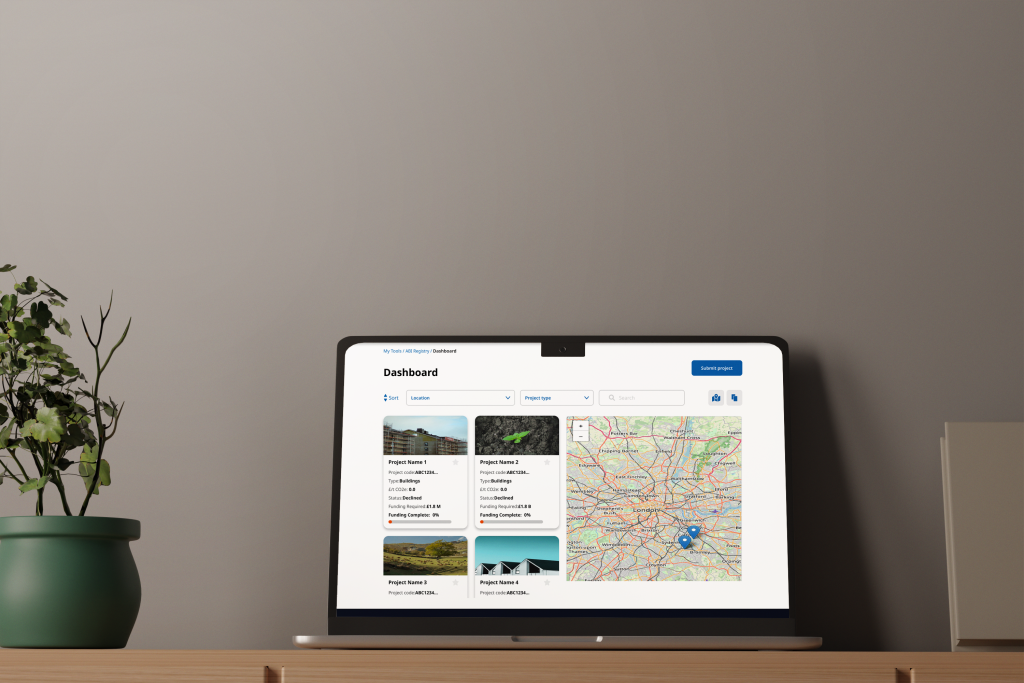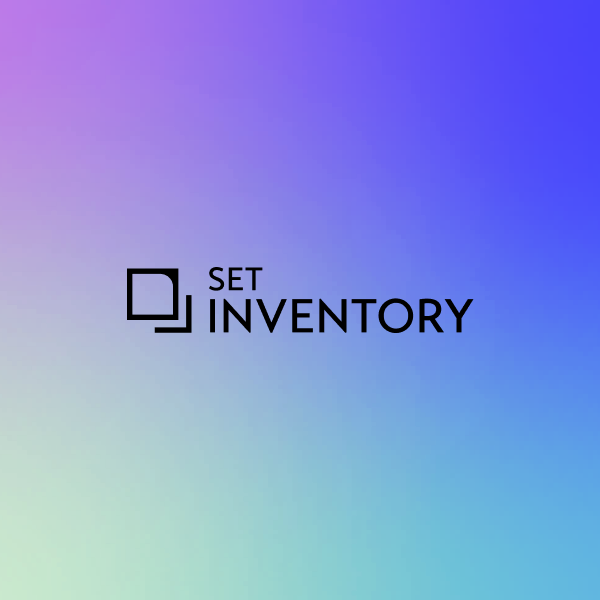The Project
Designed a new digital platform to simplify how local businesses submit planning permission applications to councils through ABI Registries. The goal was to streamline a previously paper-heavy process and create a collaborative workflow that supports transparency, accountability, and speed.
Working closely with local authority stakeholders, the platform was built to meet government standards while offering an intuitive experience for applicants, administrators, and planning officers.

The Problem
Submitting planning permission applications was fragmented, manual, and slow, creating friction for both applicants and local councils.
Prior to ABI Registries, businesses had to navigate complex requirements, inconsistent formats, and offline workflows. Councils, in turn, faced delays, version control issues, and limited visibility into application progress.
This resulted in:
Time-consuming admin work and long turnaround times
Poor communication between stakeholders
A lack of transparency and accountability throughout the process
There was a clear need for a centralised, digital-first solution that streamlined submission, review, and collaboration.
The Solutions
A web-based platform that simplifies planning permission submissions and improves collaboration between businesses and local councils.
Key outcomes included:
Streamlined Submission Flow
A guided, step-by-step process for applicants to complete and submit planning requests with clarity and consistency.Dashboard for Councils
A central workspace for reviewing, approving, and managing applications—reducing back-and-forth and improving transparency.Built-in Communication Tools
In-platform messaging and status updates ensured all stakeholders stayed informed without relying on email threads.Digital Audit Trail
Every submission and interaction is tracked, creating accountability and simplifying compliance for public sector workflows.
The platform replaced paper-based processes with a scalable, accessible solution that benefits both users and administrators.
Deliverables
Web App
UI Branding
Design system
Develop the product
Team
Technical Lead Developer
UI/UX Designer
Product Owner (PO)
Scrum Master
Tester
Front-end Developer
Back-end Developer
What We did
UI/UX Research
UI/UX Design
Developed
Client’s Goals
Modernise planning permission workflows to improve efficiency, transparency, and public sector usability.
The client aimed to reduce delays, increase digital uptake, and better support both businesses and council teams.
Streamline the Submission Process
Make it easier for businesses to submit complete, compliant applications without needing extensive guidance.
Ensure Public Sector Accessibility Compliance
Design an interface that meets WCAG standards and supports a wide range of users, including council staff with varied technical experience.
Improve Collaboration Between Councils and Applicants
Introduce a shared platform to reduce miscommunication, manage revisions, and track progress in real time.
Reduce Administrative Overhead
Digitise document handling, communication, and status tracking to save time and reduce manual effort for all parties involved.
Target Audience
Designed for local businesses, planning officers, and administrative council staff navigating the planning permission process.
The platform had to accommodate a range of digital skill levels while supporting efficient, compliant workflows on both sides of the application process.
Primary Users
Business Owners & Developers submitting planning permission requests
Planning Officers reviewing and approving applications
Council Administrators managing submissions and ensuring compliance
User Needs
Step-by-step guidance through complex submission requirements
Real-time visibility into application status and communications
A reliable, digital system to reduce manual tracking and delays
Behavioral Patterns
Often working under tight deadlines or regulatory constraints
Switching between multiple submissions and documentation types
Expecting clarity, auditability, and low-friction collaboration
Core Features
Step-by-Step Application Builder
Council Review Dashboard
Status Tracking with Notifications
In-Platform Messaging Between Stakeholders
Secure Document Uploads and Versioning
Additional Features

WCAG-Compliant Accessible Design
Printable Application Summaries
Role-Based User Permissions
Auto-Save and Draft Mode
Audit Logs for Compliance and Oversight
Achievements
Successful Launch Across Multiple Councils
The platform was adopted by several local authorities, enabling faster, more consistent planning workflows.
↑ Improved User Confidence and Clarity
Applicants reported greater confidence in submitting correct information, with fewer back-and-forths needed.
Aligned with Government Digital Standards
Designed to meet UK public sector requirements, including accessibility and data security compliance.
↓ Reduced Application Processing Time
Digitized workflows and real-time collaboration significantly cut down on delays and manual coordination.
↑ Stakeholder Transparency and Accountability
The shared dashboard and audit trail increased visibility into submission progress and decision timelines.
Information Architecture
Organising information flow for intuitive and efficient user journeys.

User Interface (UI) Design


Technology Stack
Frontend

React JS

Material UI
Backend

Next.js

PostgreSQL

AWS

Firebase
Project Management
We chose the Agile methodology for this inventory software development project because it supports iterative development and adapts easily to changing requirements. This approach allowed us to make frequent updates and continuously improve the project based on feedback.
Sprints
We divided the project into short development cycles (sprints) with frequent releases and updates that kept the project on track
Communication
We used teams and Jira for project management to organize tasks, track progress, and collaborate efficiently with maximum visibility.
Cross-functional Teams
Our developers, designers, and testers worked closely together to ensure seamless integration and high-quality outcomes.
User Feedback
We placed a strong emphasis on user feedback to drive iterative improvements.
Let’s Talk About Your Project
Tell us what you’re building, and we’ll take it from there.
Please fill out the form to schedule a free 30-minute discovery call where we understand your idea, offer early advice, and suggest the best next steps.
